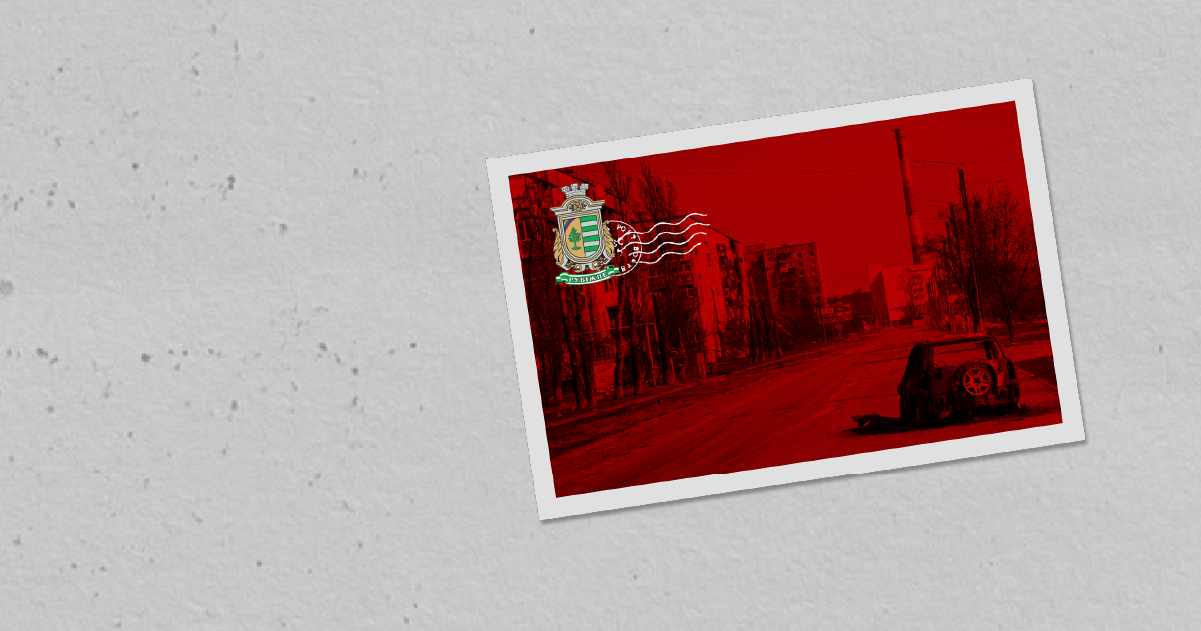"We were driving past corpses and buildings on fire — it was so scary that we closed our eyes": The story of the vice-principal of Rubizhne school
Tetiana Petrova (Vostok SOS)

The morning of February 24, 2022 was a worrying one for Maryna Serhiienko (name changed for security reasons), who lived in Rubizhne, Luhansk region. It started at around 6 a.m. with explosions outside her window. Maryna immediately started calling her colleagues to decide how the school was going to operate. Since the explosions were heard nearby, they first announced distance learning for two days. But the teachers went on duty at the school, and a basement was set up to shelter people from the houses near the school.
"Our basement is not a bomb shelter. But over the course of 8 years, we had equipped it a little bit, and we had a place to take people in," Maryna recalls. "The city announced that we had a shelter, so the first people came to us when the first shots were fired. They were displaced people from the occupied territories in 2014 because they knew what a nightmare it was. And then the locals came."
From the very first days in Rubizhne, Russians could be heard shelling the outskirts of the town and the industrial area — the Cardboard and Packaging Plant. The plant was shelled as if on schedule — from 5 a.m. to 10 p.m.
On March 8, shelling of the city began. On that day, two shells exploded in the centre of Rubizhne, destroying two houses. At that time, Maryna was at school because there were many people in the shelter, so she had to keep order.
The basement was designed for 450 people, but by the end of March, there were more than 1,500 people there, mostly elderly people and families with children. Some of Maryna's colleagues also moved there because their homes had been hit. In particular, the school principal lived there from March 9 to 24.
"Since March 9, people have been melting snow because there was no more water in the taps, and the signal was cut off," says Maryna. "Around March 11, the gas supply was cut off because the gas pipeline was hit. So we cooked on a fire outside. We took pots out of the canteen, took old desks and pallets from the basement that we had bought for the children to use in their Design and Technology lessons. They were used for firewood... There were breaks of up to an hour between shelling, sometimes 20-15 minutes. And people were working hard because they needed to collect water and snow, to heat the fireplace, etc."
Maryna lived nearby, so she came to school every day. However, on March 11, the shelling became so intense and long that she could no longer leave the basement. She had two daughters with her, one with diabetes and the other nine months pregnant.
March 10 was the last day that bread was brought to Rubizhne from Lyman. On that day, a car that went to the bakery to get bread was not allowed out of the city because the Russian army approached. The next day, the shops were closed, but there was no one to go to them: the neighbourhood was shelled so heavily that it was impossible to leave the basement.
Around March 10, the Russian military fired at the northern outskirts of the city, hitting houses and a school where people were hiding. At that time, the Ukrainian military was in the suburbs, holding the line.
On March 15, Maryna decided to leave the city — on that day, Russians entered the city and street fighting broke out in the northern part of Rubizhne. Marina did not hesitate because her younger daughter was running out of insulin, and it was impossible to get it in Rubizhne. She left with the help of the patrol police.
"The mine that fell nearby did not explode, and we were driving past corpses and buildings on fire," says Maryna. "The guys were driving us through streets I had never walked in peacetime, and the main thing was to drive fast. It was scary that we closed our eyes."
This way Maryna moved to Lysychansk and then to Dnipro. At the end of April, the school staff resumed distance learning and finished the school year together with the children.
Colleagues who left Rubizhne later said that the Kadyrov Rosguard Special Regiment's soldiers were the first to enter the city, telling civilians that it was a gift to them and they would do whatever they wanted. They took away people's phones and all their property from the surviving apartments.
"If they couldn't take it out, they shot the owners," says Maryna. "Colleagues who went home [reported] that there was not a single TV or printer in the school. I'm not even talking about chairs and other stuff — everything was taken away. The TV sets that they couldn't take away were fired at. Life has completely reset... Well, it's okay, my granddaughter was born in Dnipro, everything is fine, my youngest finished the 11th grade, so everything is fine, life goes on."


